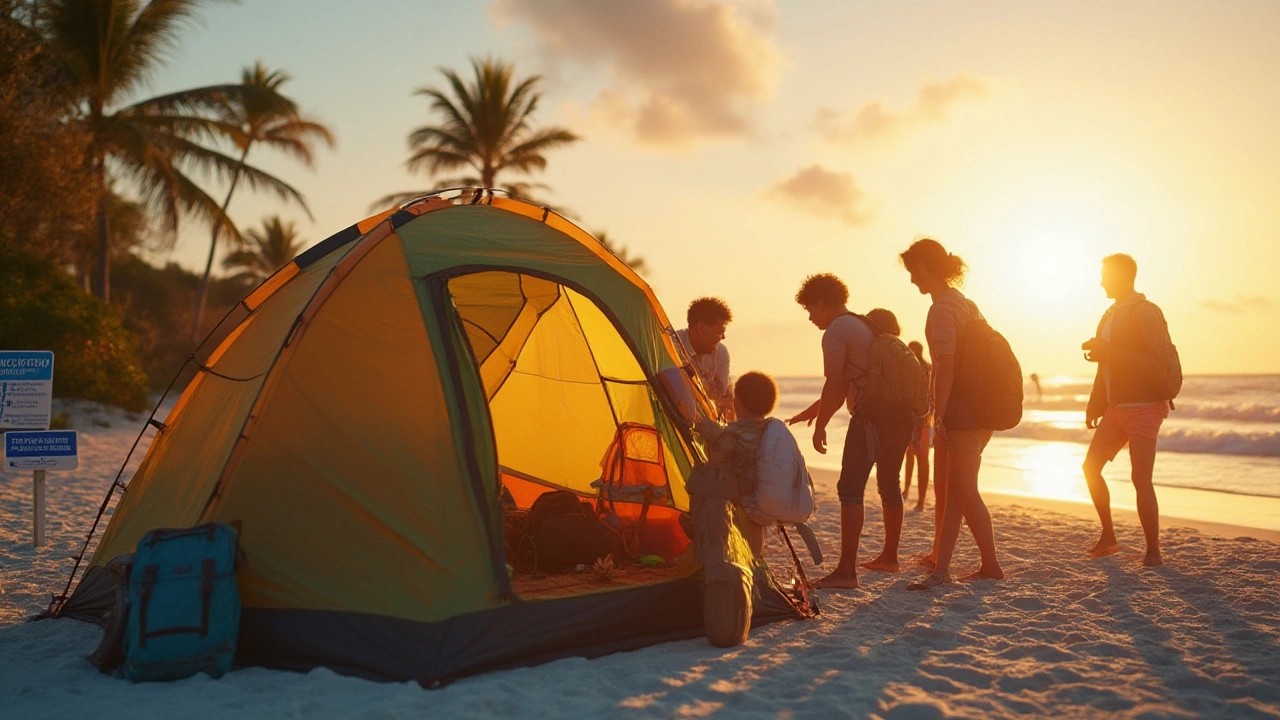Florida Beach Camping Guide: How to Camp Safely and Legally on the Sunshine State’s Shorelines
If you love waking up to waves crashing and salty air, Florida’s beaches are a dream campsite. But before you throw your tent on the sand, you need a quick rundown of the rules, the best spots, and the gear that makes life easier. Let’s break it down so you can enjoy the coast without getting a ticket or a surprise tide.
Where You Can Camp on Florida Beaches
Florida isn’t a free‑for‑all when it comes to beach camping. Most state parks allow overnight stays only in designated campgrounds, not on the open sand. Look for places like Fort De Soto Park, Bahia Honda State Park, and Grayton Beach State Park – they have beachfront sites with water hookups and bathrooms.
If you’re after a more rugged vibe, the Florida Keys have a few primitive options, such as the campground at Sugarloaf Key. These spots often require a reservation and a small fee, but they let you set up a tent right on the beach.
Legal Tips and Safety Basics
First thing: never camp anywhere that says “No Camping” on the sign. Violating the rule can lead to a fine of up to $500 and a quick removal by park rangers. Keep an eye on tide tables – the last thing you want is a high tide washing your gear away.
Don’t build a fire unless the park explicitly allows it. Most Florida beaches ban open flames because of the dry brush nearby. Instead, bring a portable camp stove for cooking. A small, battery‑powered lantern will keep your campsite lit without attracting wildlife.
Protect yourself from bugs. Mosquitoes and sand flies love the warm evenings, so pack a good repellent and a screen net for your tent. Also, use sunscreen liberally – the sun reflects off the sand and can burn you faster than you think.
Finally, respect the environment. Pack out everything you bring in, use designated trash bins, and avoid trampling dune vegetation. The more you leave untouched, the more future campers can enjoy the same pristine spots.
Ready to hit the beach? Here’s a quick checklist: park reservation confirmation, tide schedule, campsite permit (if needed), lightweight tent, sleeping bag rated for 50°F, portable stove, sunscreen, insect repellent, and a reusable water bottle.
And if you’re traveling with a motorhome, consider renting one from Teiseside Motorhome Adventures. A motorhome gives you a comfy bed, a kitchen, and a bathroom, so you can camp at a nearby RV park and still enjoy the beach at sunrise. Many Florida RV parks sit just a short walk from the sand, letting you blend convenience with that salty sunrise vibe.
All set? Pack smart, follow the rules, and let the waves be your soundtrack. Florida’s beaches are waiting, and with the right prep you’ll have a camping story worth sharing for years to come.
Florida Beach Camping Laws: Can You Legally Camp on the Beach?
Is beach camping legal in Florida? Learn about state laws, tips, and where you can set up your tent for an unforgettable night by the sea.
